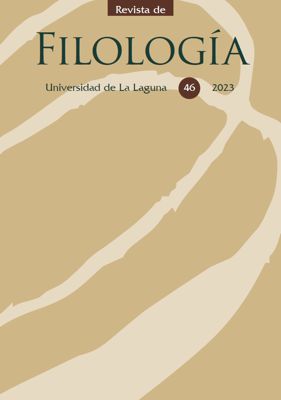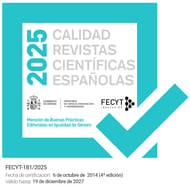Unidades fraseológicas derivadas de פָנִים / FACĬES en los romanceamientos del Génesis (una aproximación cualitativa)
Resumen
El uso de expresiones fijas con elementos somáticos es una de las características que más ha llamado la atención de los estudiosos del latín bíblico. Teniendo en cuenta que muchas de estas locuciones son calcos del hebreo, este trabajo estudia la importancia que tuvieron las traducciones medievales de la Biblia hebrea y de la Vulgata para la creación y el desarrollo de estos esquemas adverbiales, formados por un una preposición inicial (o incluso dos) y un sustantivo que sirve de núcleo. En esta ocasión se analiza pormenorizadamente el libro del Genesis y se presta especial atención a las expresiones fijas y a las combinaciones libres derivadas de los sustantivos פנָיִם / FACĬES. Se analizan sus funciones discursivas y los principales patrones de cambio morfosintáctico, haciendo especial hincapié en las diferencias semánticas que manifiestan en el tránsito del hebreo al español. Para llevar a cabo este trabajo se ha utilizado el corpus Biblia Medieval, un corpus diacrónico que permite consultar en paralelo todas las versiones bíblicas medievales en castellano que se han conservado.

Esta obra está bajo licencia internacional Creative Commons Reconocimiento-NoComercial-SinObrasDerivadas 4.0.
Los trabajos publicados en esta revista son propiedad de sus respectivos autores y autoras, quienes conceden a la Revista de Filología de la Universidad de La Laguna el derecho de primera publicación, tal y como se recoge en nuestra Política de derechos de autoría.









